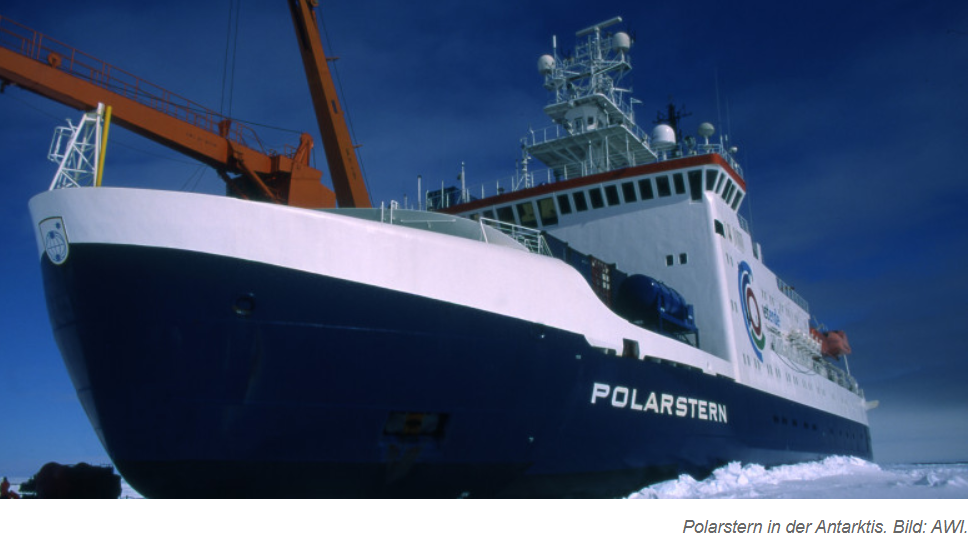Lately we’ve been hearing reports of how Arctic sea ice has (unexpectedly) reached normal levels this winter. This is a bit of good news which the media avoid mentioning.
But the resurgence of Arctic ice has hardly been good news for global warming alarmists, and especially for the 300 crew members of German high-tech research vessel Polarstern of the Alfred Wegener Institute (AWI), now currently on expedition in the mid Arctic.
Exchange of Polarstern research vessel crew will have to sit tight as Russian supply ice breaker gets held up. Image: Alfred Wegener Institute.
Yesterday NDR German public broadcasting reported that it appears the Polarstern’s crew will have to sit tight for awhile longer because a Russian ice breaker for exchanging the crew has had too much difficulty breaking its way through the ice to the research vessel. The sea ice is thicker than anticipated.
The NDR reports: “There are problems with the Arctic expedition of the Alfred Wegener Institute in Bremerhaven. The crew on the research vessel ‘Polarstern’ have to stay on site longer than expected.”
“Dense ice”
The problem is that the Russian supply icebreaker became bogged in “the dense sea ice of the Arctic” and now “is making little progress”. The ice has been too thick for the Russian ice breaker to make its way as planned.
The Polarstern research vessel of the AWI MOSAiC expedition departed mainland Europe last September and has since lodged itself in the middle of the Arctic ice through the winter as part of an Arctic research expedition. It will return back to its home-port of Bremerhaven in early October of this year.
The “MOSAiC” expedition is one of the largest Arctic expeditions ever with scientists from 20 nations studying “the climate processes of the central Arctic”. The crew of 300 on board the Polarstern is supplied and exchanged at about every three months by “an international fleet of icebreakers, helicopters and aircraft,” Radio Bremen reported.
Thick ice caused breaker to run out of fuel
Just recently Russian supply ice breaker “Captain Dranitsyn” was headed over to carry out a scheduled “crew exchange” but ended up consuming too much fuel trying to break through the “up to 160 centimeters thick” sea ice, Radio Bremen reported. Now the supply icebreaker “no longer has enough fuel for the return trip because of the high energy consumption in the ice.”
There were “few open or thin spots,” one official explained.
“According to a spokesperson, the Alfred Wegener Institute (AWI) in Bremerhaven is now looking for solutions, and several options already prepared for such situations are being examined,” writes Radio Bremen.
The cost of the Polarstern MOSAiC expedition is 160 million euros.




